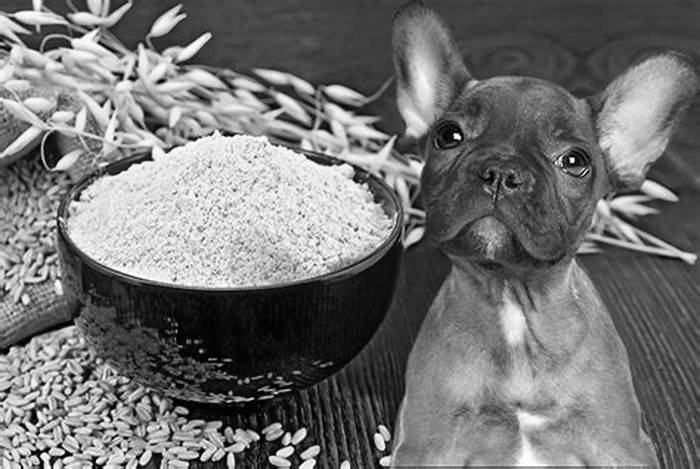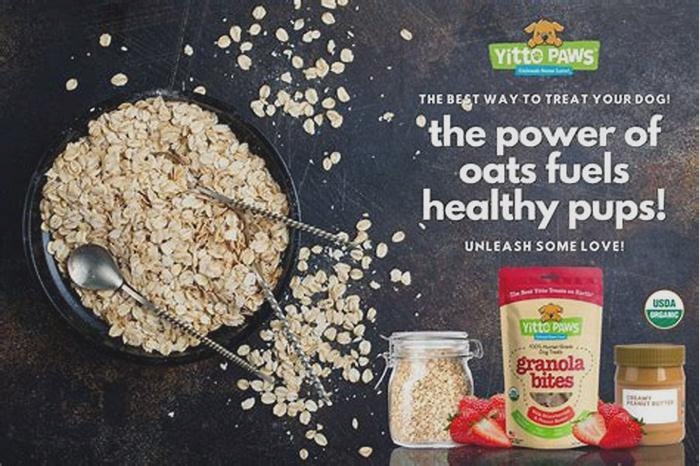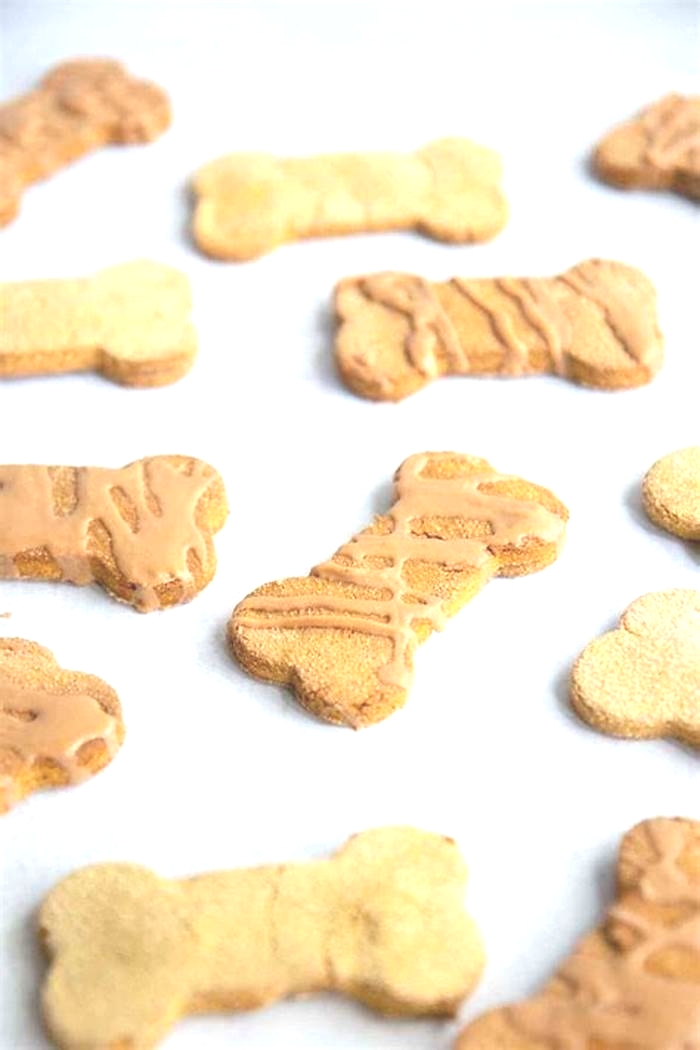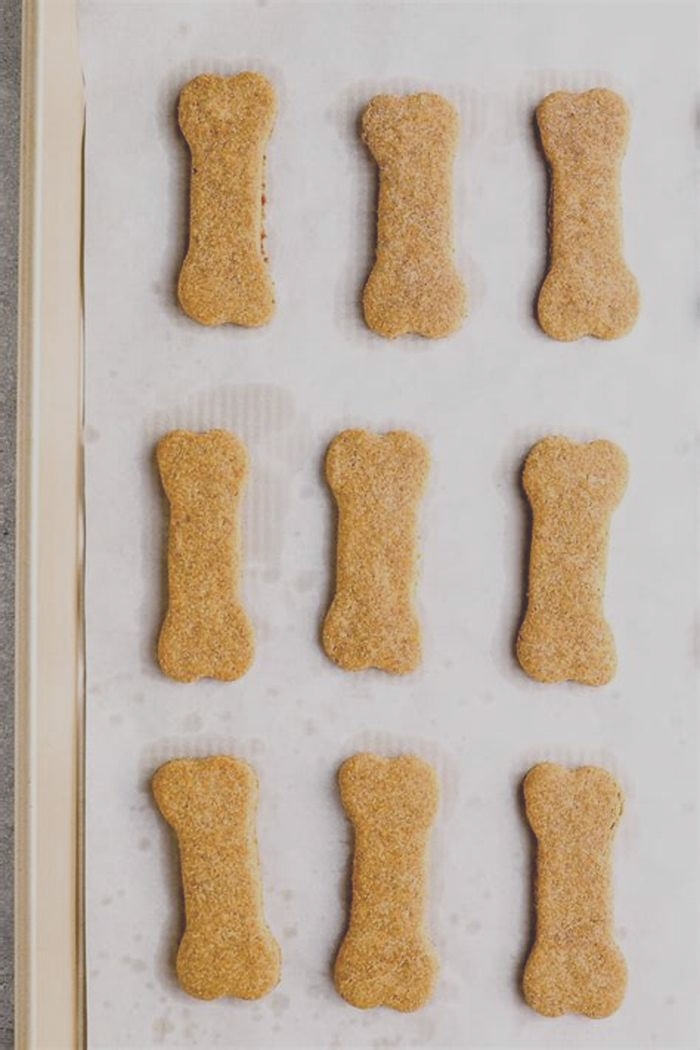is oat flour okay for dogs
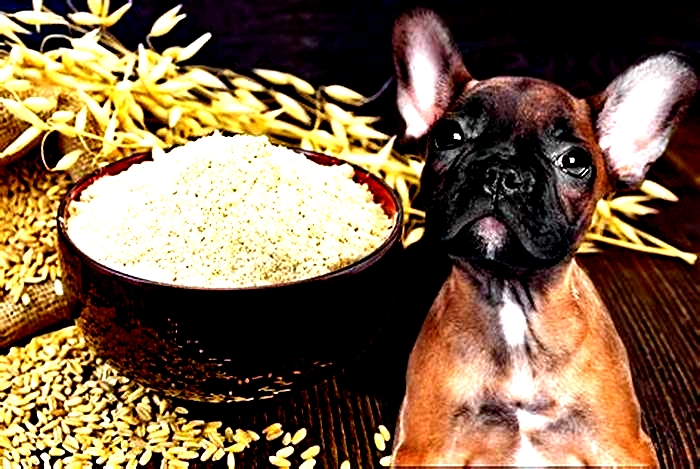
Choose the best flour for your homemade dog treats
Want to start making your dog homemade dog treats but arent sure where to begin?
Whole wheat flour is by far the most commonly used flour in commercial and homemade dog treats but if you are seeking an alternative, like a gluten-free or a grain-free option keep reading because one of the flours below is great in treats as well.
If you have a dog treat recipe that calls for flour start here with the 5 safest flours to use in your homemade dog treat recipes!
Keep reading to find out about the variety of flours to use in your homemade dog treats.
The best flour to use in your dogs food is going to depend upon your dogs specific needs. Does your dog do better with a gluten-free or grain-free option or one that is lower on the glycemic index?
A lot of dog food companies use flour in dog food many times as fillers. Since flour was not a natural ingredient in your dogs diet remember to give the treats sparingly.
There are plenty of dog-friendly flours for dog treats to choose from and if you are looking for some healthy dog treat recipes you can find a ton here!
Continue reading to find out about the 4 main categories of flour and their pros and cons when making treats for dogs.
We also touch on some flours you should avoid at all costs at the end of the article, or jump to that section now by clicking here.

Grain-Free Flours For Dogs
Grain-free flours are those without grains and are usually used to substitute whole grain flours in dog treats.
Grain-free flours are an excellent choice to use in treats for dogs that have:
- Gluten sensitivity
- Autoimmune disease.
1. Almond

As one of the most popular flour for pet owners to use, many owners will say that almond flour makes a great alternative to wheat flour and is one of the best flour to use for dog treats.
Almond flour is a great flour for dog treats as it is made with almonds that have usually been blanched and finely ground to a light, fluffy texture.
Almond flour is high in plant-based proteins, low in carbohydrates, and gluten-free. There are many dog treat companies and pet food companies that use almond flour in their ingredients.
Pro
You can easily make almond flour at home to include in your pets so you know exactly what is in your treats, no additives or preservatives! Almonds are pretty high on the nutrient list as they are full of healthy fats, calcium, fiber, vitamin E, iron, and plant-based proteins.
Con
Unfortunately, with all of the benefits of almond flour comes the high-calorie count with one cup having an average of 648 calories. Almond flour is great for treats that can be cooked at lower temperatures as it contains delicate fats that can be oxidized when cooking at higher temps
2. Quinoa flour

Yes, dogs can eat quinoa and quinoa flour! Quinoa flour is a good alternative to wheat flour and is naturally gluten-free and extremely high in plant-based protein. You can easily make this flour at home by grinding raw quinoa seeds.
Pro
It is also a source of fiber and iron for your pup. It provides all 20 essential amino acids as well.
Con
It doesnt hold the shape as well as some other flours, so may not be the best choice if you are using cookie cutters or need a specific shape.
3. Coconut Flour
Coconut flour is made from dried and ground coconut pulp which you can do at home but may not be as easy to make as almond flour.
It has less fat and fewer calories than almond flour but also has fewer vitamins and minerals than almond flour.
Pro
Coconut flour is pretty high in fiber which is great for stomach regularity and because of the dryness it is great for thickening broths or other liquids you may want to top off your dogs regular meals with. Coconut flour is a great option if your dog is dieting or needs to be on a low-carb diet.
Con
Coconut flour can be a little grainy when working with it and because it is so high in fiber it can sometimes be hard to digest so make sure your pup has water readily available when giving them treats made from coconut flour. You may also have to add extra water when baking your treats as it often needs more than lighter flours.
While dogs can have coconut flour, you may want to avoid using coconut flour in dogs that suffer from allergies, irritable bowel syndrome or IBS as it may cause gas, bloating, and other symptoms of the syndrome.
4. Arrowroot Flour
Arrowroot flour is a starchy substance that comes from the tropical plant Maranta Aundinacea. Many pet owners swear by it to help alleviate digestive issues in pets including upset stomach, diarrhea, and constipation.
Pro
It is generally safe to use in dogs and can be mixed with other flours to make treats. It is rich in iron, B vitamins, and potassium.
Con
Used alone it will not make a great dough, it will be more of a paste consistency and you will need to mix in another type of flour to form treats
Its a versatile flour and can be used as a thickener or mixed with almond, coconut, or tapioca flour for bread and dessert recipes. If you want a crispy, crunchy product, use it on its own.
5. Potato Flour
Potato flour is a white powder ground from whole peeled and dehydrated potatoes. This makes it ideal to use as a thickening agent because it attracts and holds water. Potato flour is a natural source of iron, B vitamins, and fiber. You can easily make your own potato flour at home if you have a dehydrator, but it does take quite a while to make it as many times it can take over 10 hours.
Pro
Potato flour has high binding power and is great to use in treats that need a lot of water as it absorbs a lot of water.
Con
Like potatoes, potato flour is high in carbohydrates so you may want to avoid it in dogs that need to lose a little weight. Most flours are at least 94% carbs.
If you like the properties of potato flour look into using potato starch as well, it is a little lighter than the flour and may be used in a wide variety of treat options as well.
6. Tapioca Flour
Also known as cassava, tapioca flour is a common carbohydrate source in grain-free dog foods.
Pro
Tapioca flour is fairly easy to work with and the texture lends itself to many recipes
Con
Tapioca flour generally lacks most nutrients and is mainly used as a filler. If you want a more nutritious option, you may want to choose another flour.
7. Chia Seed Flour
Chia seed flour is easy to make and packed with nutrients that will benefit your furry friend. Incorporating chia seeds into your dogs diet is always a great thing, while there are some dangers that you may want to keep in mind that you can read about in this article, they are fairly safe for dogs. Chia seed flour is basically finely ground chia seeds.
Pro
Chia seed flour makes a great egg substitute if you dont want to use eggs
Con
Chia seeds are extremely drying and can expand when wet, so ensuring your pet has adequate water available to drink and that you add water to the treats will help prevent bloating. Read our article about the dangers and risks of feeding chia seeds to dogs here.
Pulse Flours For Dogs
If you are looking for an alternative to grain-free flours?
These flours are made from pulses or legumes and are a great gluten-free flour option.
Most pulse flours are made by milling or grinding whole pulses into flour and many of them can be easily made at home and retain most of their inherent nutrients. All pulses are gluten-free.
8. Chickpea flour
Chickpea flour is another great gluten-free flour for making dog treats, it is made from ground dried garbanzo beans and is extremely high in fiber and protein.
It is often used in gluten-free recipes for dogs as an alternative to wheat flour. It is pretty filling so a couple of treats will go a long way. The flour has the same amount of protein and fiber as whole wheat flour.
Pro
Chickpea flour sticks together pretty well and adds a bit of texture to treats. Because it is high in fiber it is a great choice for dogs that may need assistance with constipation or firming up diarrhea.
Con
Because it does have a slightly nutty taste some dogs will turn their noses up at treats made with chickpea flour. It is a heavier flour, so combining it with lighter flours like potato starch or almond flour may make your treats a bit less dense.
9. Lentil
Lentil flour is made from you guessed it, dried and ground lentils. It is a great flour for dog treats as it is an extremely nutrient-dense pulse and it is high in protein and fiber.
Pro
It is an excellent source of iron, has a low glycemic index, and is low in calories which makes it a great flour for treats in a dog that is trying to lose weight.
Con
As with most of the treats listed, you can overdo and give them too much which will usually result in an upset stomach. But that is pretty much the only con when considering lentil flour to include in your dogs treats
10. Pea
Pea flour is milled from roasted peas and is rich in plant-based protein, iron, calcium, and fiber. You can easily make it at home by roasting your peas and grinding them. Pet parents make pea flour from all types of peas including split and yellow.
If you are making dog treats that require a green hue using green pea flour will be just what you need.
Pro
Pea flour is slightly less than other pulse flours and most dogs enjoy the taste
Con
There are some dogs that are highly allergic to peas and your treats will come out green if you use green peas

Psuedo-grain flours for dogs
Pseudograins or pseudocereals are non-grasses that resemble grains. They are actually seeds but are not biologically similar in nutrient composition to grains but can be used in the same manner.
11. Amaranth flour
Amaranth flour is made by milling amaranth seeds into a fine powder. It contains higher amounts of many micronutrients than most other grains and pseudo-grains mentioned.
Pro
The flour is rich in vitamins and fiber and is gluten-free. It is highly nutritious and packed with proteins.
Con
Not only is amaranth pretty expensive, but it has a high glycemic index which may interfere with blood sugar levels and is not best for dogs with diabetes.
It also has what many describe as an earthy or grassy flavor which may not appeal to some dogs, but since most dogs do eat grass from time to time its probably more the human that wont like it.
It is a heavier flour so you may have to combine it with a lighter flour like almond to get the right consistency depending on the treats you are making.
12. Millet flour
Millet is a common ingredient in many dog foods and is a small grain-like seed which while not the highest in protein and fiber is a great choice for treats due to consistency.
Pro
Millet is a source of carbohydrates and is high in B vitamins, phosphorus, and iron, but it is easier to digest than whole wheat
Con
Aside from acting as a filler, there arent many added nutritional benefits to including millet in dog treats.
13. Buckwheat
Buckwheat flour is a pseudo-grain flour made from roasted buckwheat. This flour is a great source of dietary fiber, carbohydrates, and plant proteins. It also contains antioxidants.
Pro
Buckwheat flour has been shown to lower blood sugar levels by 12-29% and could be beneficial when included in treats for dogs that have diabetes.
Con
There was one study done that found two dogs fed high amounts of buckwheat flour suffered from liver disease (source).
14. Teff flour
Teff flour is not commonly added to dog foods or treats but is perfectly okay to be used as a flour alternative, so yes dogs can eat Teff flour. It is a staple in many Ethiopian diets and has a nutty flavor. It has more iron than barley and more calcium than oats.
Pro
Teff flour is rich in fiber and protein and can be easily mixed with other gluten-free flours. It is a great choice for dogs that have sensitive stomachs since it is high in fiber and gluten-free.
Con
The nutty, earthy flavor may deter some picky eaters
Whole Wheat Grain Flours For Dogs
Whole wheat grain flour is made from grains that are members of the grass family.
15. Brown rice flour
Brown rice flour is an excellent choice as grain flour for making dog treats fed in moderation.
The flour is made from finely ground brown rice and is rich in fiber with a light texture similar to white flour which makes it a favorite of many pet owners. Many pet food companies include brown rice flour in their formulations.
Pro
It is pretty easy to work with and may give similar results as regular white flour when baking. There is also not a strong taste to deter picky eaters.
Con
There are not many downsides to including brown rice flour in your dogs treats aside from possible allergies if your dog suffers from them.
16. Oat flour
Oat flour is good for dogs and a pretty common substitute for many other flours because it is readily available and simple to make. If you have oats then you can quickly and easily make oat flour!
Pro
As with most of the flours mentioned, oat flour has protein and fiber which makes it good for dogs that may have some digestive upset with other flours. Oat flour has zero calories making it a great choice for pups that may need to lose a few pounds.
Oat flour is also good for dogs needing to loose weight because the oats retain water and may make them feel fuller faster.
Con
If your pup is allergic to oats or has a hard time digesting them obviously steer clear of oat flour
17. Sorghum Flour
Sorghum is often classified as an ancient grain flour and is a good source of vitamins, minerals, plant-based proteins, and antioxidants.
Pro
The texture is super fine so it makes exceptional treats and is easily blended with other flours for various consistencies.
Con
It is a grain so if you are concerned about feeding your pup grains steer clear
18. Whole-Grain Wheat Flour
This is a popular whole wheat flour that pet owners use to make their pets treats.
While it isnt simple to make at home it can be found in most grocery stores. Whole wheat flour contains a lot of protein, carbohydrates, vitamins, minerals, and fiber.
If you decide to choose whole-grain wheat steer clear of white flour which has very little nutritional value because of the way it is processed. Whole wheat flour retains the bran or outer shell which is where the bulk of the nutrients come from.
Pro
Whole wheat flour is pretty much everywhere and is cost-effective. Whole-grain wheat flour is excellent for baking because it holds shapes well and is easy to work with. There is little taste associated with whole wheat making it a good choice for most pups.
Con
Whole wheat is not grain-free or gluten-free, if either of these is a concern for you use one of the other flours listed. Al
Flours You Should Never Feed Your Dog
- White flour This provides little to no nutrients
- Soy due to the processing it is not safe for pets
- Corn Contains little to no nutrients
There are a lot of options when it comes to choosing the best flour for your homemade dog treats. It really comes down to your dogs preference and health needs. If you want to know how to make your own flour instead of purchasing it from the store, you can read this article.
If you know someone that has a pup and they enjoy making treats at home, why not share this article with them!

Just some key things to remember when making your dog treats
- They all have a con: In this article, I touch on the pros and cons of the various flours you can opt to use in your dogs treats, but they all have one con in common and that is too many of a good thing can be a bad thing. Always use moderation when feeding treats.
- Possible allergies: Some dogs may be allergic to some flours like peas or wheat so obviously make sure to keep that in mind when choosing
- Buy organic: While many of the flours are simple to make at home the easiest route is to pick some up while youre out and about. If you choose this route opt for organic flour
- Meal replacement: Treats are not meal replacements so while dogs are omnivores and can have plants they do still need meat to have a healthy, balanced diet
- Consultation: Always consult with your veterinarian prior to feeding any homemade treats or meals
- Mixing: You may find it best to mix flours to get a perfect consistency. After playing around with it for a while you will find a go-to flour mixture that works for you and your fur baby
- Feed any treat sparingly, the purpose isnt to replace meals with treats
- Store your flour in an airtight container. If you have an airtight container that can go in the freezer this is great for long-term storage.
The best flour for dogs with illnesses
Diabetes
- Red Lentil Flour
- Buckwheat Flour
Inflammatory Issues
Digestive Issues
- Sorghum Flour & buckwheat flour
Obesity
Gluten Intolerance
Coconut Flour
Allergies
Coconut Flour
References
One Green Planet
The Nest
This blog is for information purposes only and is not meant to take the place of a licensed vet, please speak with your regular vet prior to changing your dog diet

